Trigger Warning: Mentions of sexual abuse, violence
A young five-year-old once visited a neighbour’s house, where there was a ‘Didi’ (elder sister). The older woman called the young girl into a room and asked her to undress, and she complied. What happened next would give the young girl sleepless nights for many years to come.
Sadly, the child who grew up in what was then called Allahabad in Uttar Pradesh did not know the difference between good touch and bad touch. She didn’t realise that what had happened was wrong and she should speak up.
She continued to be sexually abused until she was 15 years old, in neighbour’s houses, on trains, and more. When she was 10, while travelling by train, a man older than her father asked her to share his berth since they didn’t have confirmed berths. He proceeded to put his hands in her pants, leaving her with a burning sensation.
Twenty-five years later, Priyatama Sharma has decided to speak up, to ensure that no other girl or child has to endure the kind of abuse she experienced. Married at 20, even before the results of her undergraduate programme were out, she endured both mental and physical abuse at the hands of her ex-husband.
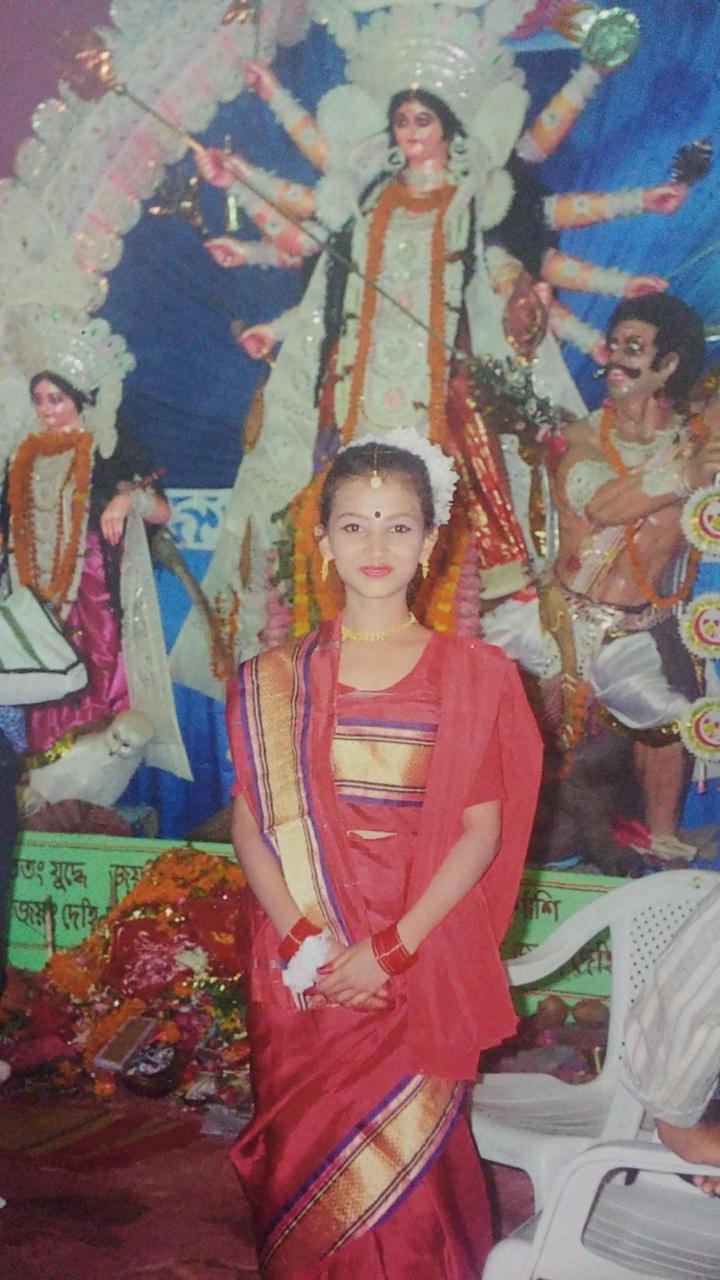
“I was living in a cage. He would get me whatever I wanted, but he didn’t want me to go outside and meet others. He disliked me wearing jeans and hit me when I wore it once. He was also against me working,” Priyatama tells The Better India.
Breaking free from the shackles of abuse, she fought her way out through education, believing that it was her path to success and freedom. While working part-time jobs, she studied and is now a librarian at a university in Bhopal. She is happily married and living her best life with her husband, where she says her worries are just like anyone else’s — concerns about career growth and health, vastly different from her life a decade ago.
“Today, these small stressors are what life is all about, aren’t they?” Priyatama says.
‘I was sexually abused, but I kept mum’
As one of four children, with one elder sister and two younger brothers, Priyatama experienced evident gender biases in her household. It was a reflection of the society she grew up in, where girls are considered ‘paraya dhan’ (someone else’s property or asset), she shares.
The boys, younger than the girls, were allowed to study whatever they wished, while the girls had to settle for an arts course, as they were less expensive. The focus was on marrying them off as soon as they completed their graduation.
“The discrimination was evident. Boys were treated like kings in every house in our village and the surrounding areas; the only goal for girls was to get married,” she explains.
Growing up in this environment, where no one taught children the concepts of good touch and bad touch, the young girl did not even realise the magnitude of the crime when the abuse started — first at her neighbour’s house, then in her own home, relatives’ homes, and elsewhere.
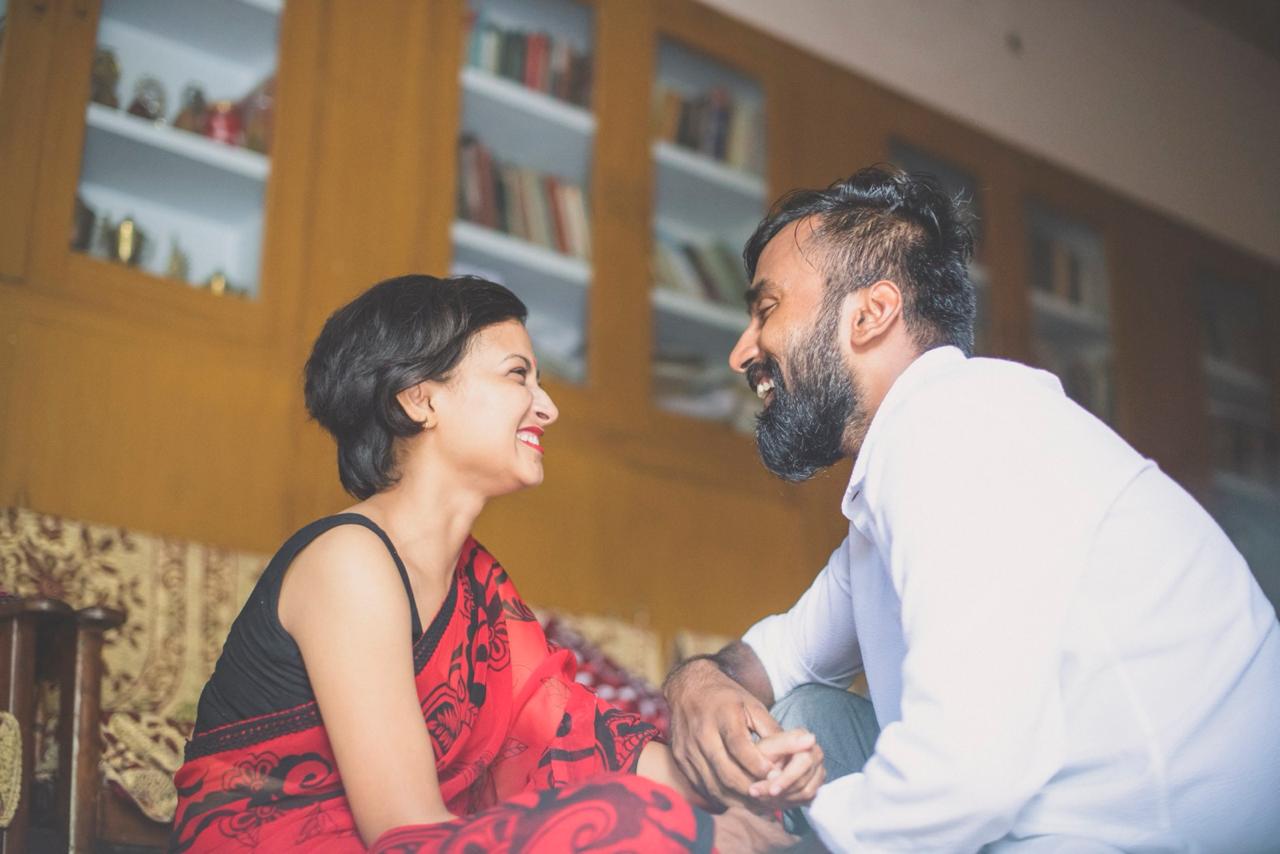
“I didn’t know the exact words to describe what was happening to me. But I knew that something was wrong; I just didn’t know what. I also didn’t have anyone to share it with. It didn’t feel right, and I didn’t feel good. From age five to 15, I was sexually abused, but I kept mum. It was a very confusing and scary period,” she shares.
She often wondered if such incidents were common and experienced by everyone. Over time, she retreated into a shell and began blaming herself.
“I used to think that I was wrong or a bad person,” she adds.
When she was in the final year of her undergraduate degree, her parents started looking for potential suitors. Having seen her elder sister marry a toxic man much older than herself, Priyatama was determined not to endure the same fate.
“Everyone in our village just wanted to get their daughters married off. It didn’t matter if the man was over 10 years older than us or had a physical disability. Parents just wanted to be done with their girls,” Priyatama says.
Seeing her sister suffer, she felt that it would be better to find a partner herself.
During this time, she met a man, a friend of a friend, to whom she confided everything that had happened to her. Since he was non-judgmental (at the time) and accepted her, she thought he would be a good match.
She eloped with this man when she was 20 and left her home in 2010. However, she was in for a rude shock when she realised that her then-husband had lied to her about his name, education, family and more. Since she had no option at that time, she endured living with him for a couple of months.
A few months later, their parents found out and came to meet them. Since her husband travelled frequently, Priyatama’s parents took her back home with the promise that they could start living together once they were settled. This period was very tough for her, as she felt cooped at home — the very situation she had wanted to escape.
“This was the lowest point in my life. I was suicidal and was meeting my husband only once every six months. I was back in the same environment that brought back all the memories I wanted to escape from,” she says.
Just opposite her house was a primary school. In 2011, Priyatama secured a job there and, for the first time, felt happy and loved. Her father tried to stop her, but this time, she was no longer going to listen. “I took my bag and left,” she shares.
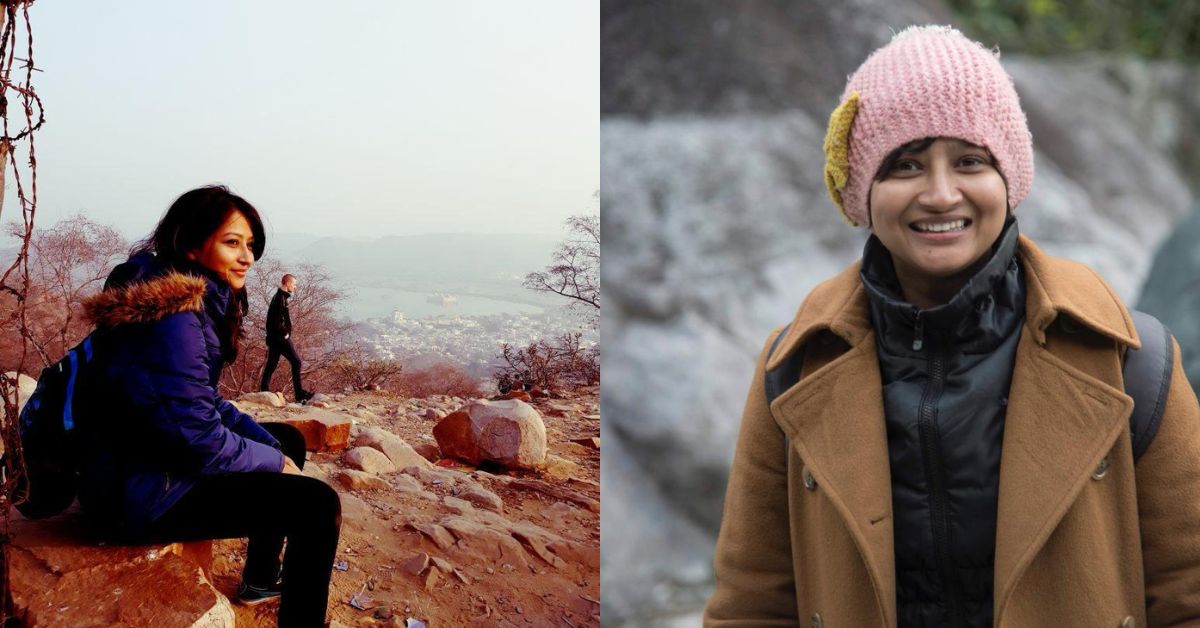
She gained confidence as she found happiness in working as a teacher. For the first time, she felt heard, valued, and respected.
“People liked me. I realised that I was not a bad person. I was not dumb,” she says.
However, as she began spreading her wings, her husband’s behaviour started to change. He didn’t want her to work or even step out of the house. He disliked her having friends, especially male ones.
“He started controlling me and hitting me. I was in a golden cage, where he would get me whatever I wanted but wouldn’t let me step outside. He tortured and abused me,” she shares.
Since he lived in a different city and they met once in a month, Priyatama, in her own words, started living a dual life. She would wear a hijab and step out of the house to pursue her passion. She tried her hand at different jobs, including a part-time stint at All India Radio in 2013.
Her colleagues and friends helped her understand the importance of education which led her to pursue a management diploma while concealing her identity outside campus. After completing the course, she secured a job in Lucknow in 2016 — a step that would change her life completely.
She found freedom, and her confidence grew as people liked and appreciated her. Her work led her to meet people from all walks of life and various states.
“I saw colleagues who had graduated from IITs, IIMs, BITS, and NITs, and I experienced firsthand the impact of education and a good college. It gives you a completely different confidence,” she says.
She soon began travelling solo, which opened a window to a completely different world. Eager to further her education, she enrolled in a master’s in Library Science course at Lucknow University. Here, too, she made friends from different backgrounds.
While she pursued her master’s degree, her husband continued to abuse her, prompting her to file a police complaint. In 2018, she stopped all correspondence with him.
‘My body is not my identity’
After stopping all contact with her former husband, Priyatama met a man who, in Gen Z terms, was a “green flag.” Brought up in a household where girls and boys are treated equally, he was kind, sensitive, and understanding, she shares.
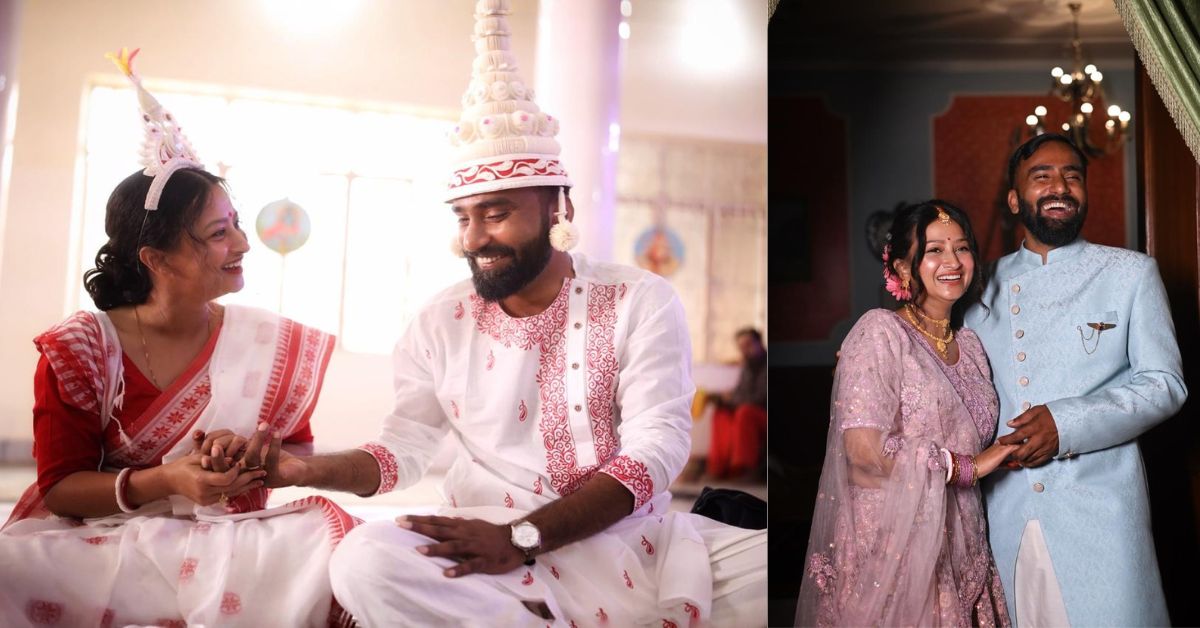
“He opened up a new world for me. He validated my emotions and understood me. He walked hand in hand with me as an equal partner,” she adds.
In 2022, Priyatama got engaged to her current husband, Gorky Sinha, through whom she realised how a different upbringing and raising of sensitive boys can make the world a better place.
Gorky believes that supporting Priyatama was the bare minimum he, or any other person in his place, should do.
“Nowadays, we celebrate the bare minimum, when a man or woman supports an abuse survivor. What we are doing is our duty; we need to celebrate the survivors instead. Just like moral values are taught in school, it’s time to teach gender equality from the very beginning,” Gorky says.
For Gorky his wife, with her courage and ability to stand strong and fight, remains a true inspiration.
“She is a very courageous, happy going girl. She accepts life as it comes, lives in the present, and doesn’t worry. Her life has been a struggle, and the way she handled problems by herself at a young age speaks volumes about her. Even when she had to go to court for her divorce, she was confident and carried herself exceptionally well. She is a true inspiration,” he says.
Today, Priyatama is at peace with herself and is slowly taking steps to heal her trauma with the help of therapy.
“Earlier, I would shiver and feel cold just thinking about those incidents. I’m working my way out of that. My body is just a body; it’s not my identity. Don’t ever let anyone make you feel less than you are because of the abuse inflicted on you. We are more than our bodies,” Priyatama says.
Speaking about creating a better India for women, Priyatama emphasises that it all begins at home and how we raise our children, especially boys.
“We must raise boys and girls equally. Let your boys also express their emotions. Don’t chide them when they cry, saying, ‘Why are you crying like a girl?’ Let go of these biases. Protect your children and make them mentally sound and strong. When boys are sensitive and in touch with their emotions, they won’t harm girls,” she adds.
‘Even if one child is saved, I am happy’
Priyatama believes that it is important to teach children the concepts of good and bad touch and create an open environment where they feel comfortable sharing anything wrong that happens to them.
“Today, I shout and fight when anyone tries to touch me inappropriately in public spaces. We must equip and train our children. The priority should be raising boys in a way that they won’t harm other women. Teach them to respect women,” she says.
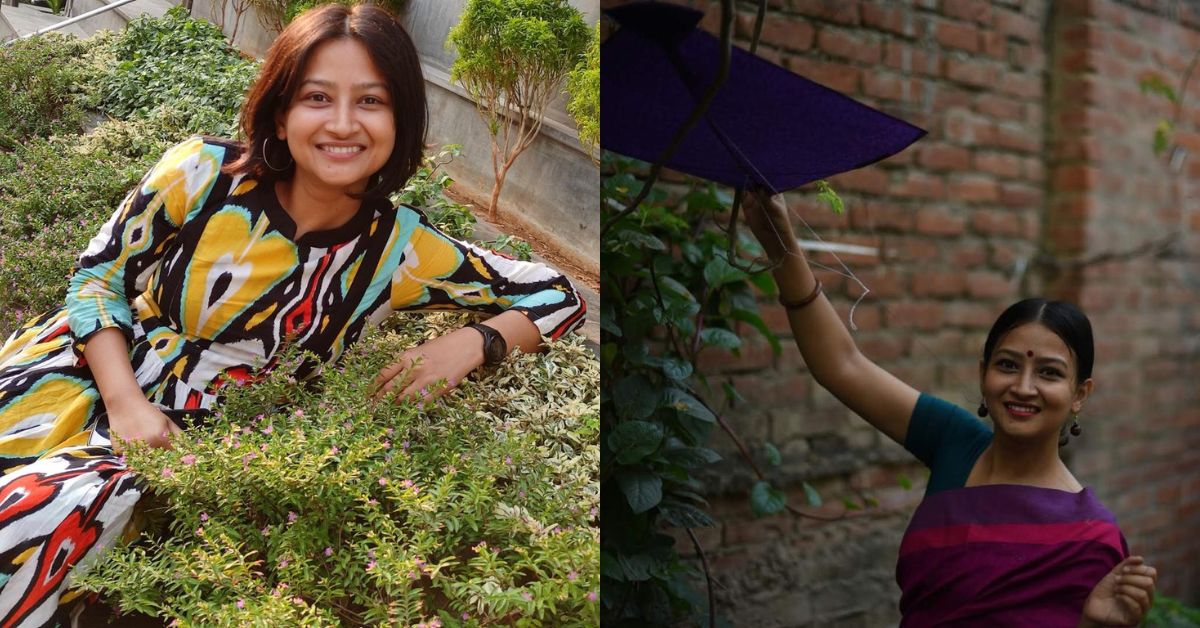
She hopes that by sharing her story she can help people overcome their victim blaming mindsets, which often lead to sexual abuse survivors blaming themselves, as she once did.
“I hope that someone, somewhere on this planet, is helped by my story. Even if one child is saved, I am happy,” she shares.
“In the end, I still have hope that there are good people out there and that everyone is not bad. Only a few individuals are harmful, and that does not mean we can’t improve. As a society, we can change if we just play our roles well,” she adds.
Acknowledging that the road may be tough, Priyatama wants women to dream big, asserting that “dreams do come true”.
“If I can do it without any support, you can too. Initially, it may be tough, but eventually, you will get what you want,” she says.
“Coming from a lower middle-class traditional family and attending a Hindi medium government school, I can now do whatever I want. I travel wherever I wish and buy things for myself, my family, and my loved ones. I feel like an eagle, soaring free above everything in peace,” she adds.
Edited by Arunava Banerjee; Images Courtesy Priyatama Sharma
No comments:
Post a Comment